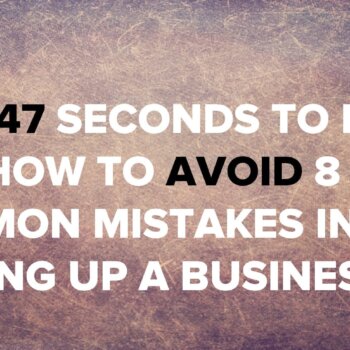I am reporting at Lean Startup Week in San Francisco. In this session on scaling, JP Mangalindan (Yahoo Finance) posed Jeff Jordon (Andreessen Horowitz and Eric Ries (Lean Startup Co, LTSE) questions to cull from their extensive experience key takeaways for scaling fast and effectively.
Is it true that there should always be more than just one founder?
There is no hard and fast rule, however, the general norm has been that 2-5 founders range has and can be been successful and any more, less so.
However, the need for one founder to be in charge is clear and so many have supported the unequal equity split, to make the final call clear. So 51% trumps 49% when push comes to shove.
As for the founding team, complementary strengths are always crucial. However here, a fine balance between enough diversity of thought and not too much diversity so much so it causes too much conflict.
A pattern in multi-founders companies is that one founder usually separates early from the company. So founder vesting where each founder gets his or her full package of stocks at once to avoid getting taxed for capital gains; but, the company has the right to purchase a percentage of the founder’s equity in case he or she walks away.
What in your experience are the traits of successful entrepreneurs?
Jeff jumped in first with “The ones with unyielding courageous persistence and power through. They are story-tellers or great salespeople. They have a vision and a clear North Star.”
Eric added quickly, “Remember the attributes that bring you to being a strong entrepreneur also makes it the same person unable to be successful. A great trait is that the entrepreneur is known to ignore certain facts. Which is fantastic as a perseverance exercise but not great in the long term management of a team.
They are also charismatic and that too can be a double edged sword. So the
same person has to do be a balance of both extremes. A rare skill.
The successful entrepreneurs who know how to look for employees who are also founders has the greatest success. Always set a high bar for talent at the start.
Remember the true story is that the early employees work harder and for less rewards than the founders. In fact that is how the mafia of the startups continues as each early team members of unicorns go on to build their own empires.
Meritocracy means good ideas come from anywhere and good ideas come from anywhere an in organization.
Find the empolyees who are more missionary than mercenary. They believe in what company is doing not just in it for the money. Remind all new members joining a startup is statistically proven not the way to get rich.
What are the classic hiring mistakes you have seen?
Too much hiring for domain expertise vs startup skill and the new employees come from a big company and they are not domain smart – they are more strategic. They have people who work for them and are verses in organizational politics
Also watch for great people entering the startup the at wrong stage. Too many hire a
CFO before they need one.
Hire my friends can be a very common and costly mistake.
What else kills rapid growth?
Startups don’t starve. They drown. When the startup is tackling everything and
they can’t pick what they are good at. Then they are lost.
To do Lean Startup is to focus. All research points to the fact that people not good at multi tasking. Technology may move fast and we humans are not good at learning so fast. Know which problem you are trying to address
Not only are many startups not focused, they are not focused on right thing
Look at the desert stories of Pinterest and Airbnb.
Jeff was reminded of how he knew he was scaling when he literally had a line outside his door till 6pm and he would have to answer all those questions which ranged from anything to everything. When you can’t make the decisions then you become a coach to the team rather than the decision maker. When you grow bigger then you are the GM and coach people who manage the teams. Basically your role is to build, motivate and leverage.
Eric posed a question that should be on every rapid entrepreneurs’ mind.
“How do you manage the psychology that you are an entrepreneur and now you have entrepreneurs working for you?”
These standards of being an entrepreneur many have to do and learn. So many startup leaders graduate successfully from the Y Combinator and forget that
have you created a Y Combinator for your employees? Your mindset moves from entrepreneur to now the investor and you have to recreate internationally in each team member what you took for granted.
Jeff looked back in self reflection and admitted that he grew ebay without much culture and in their 5th year looked back and went “Eeeek! I should have put in culture.” Citing Alfred Lin from Y Combinator the power of culture can fix all problems, so spend a lot of time on culture. Eric chimed in that the shared consciousness is a mindset as well as key metrics CEO should pay attention as scale. This consistent set of metrics act like a North Star.





























